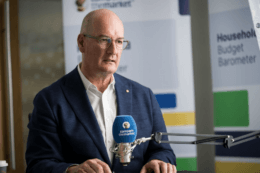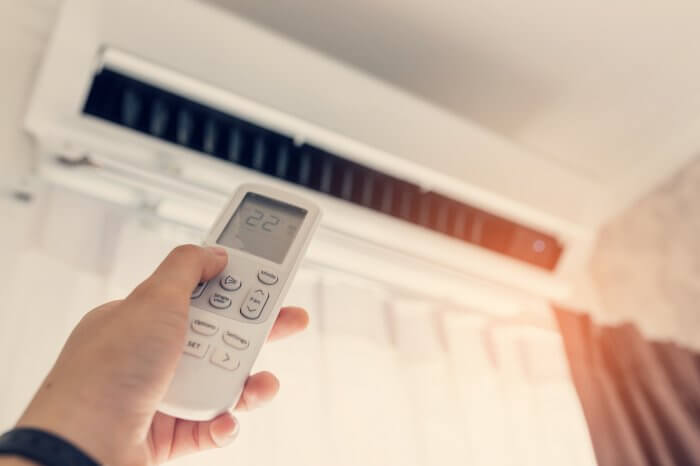
As the value of the Aussie dollar tumbles and international travel becomes more expensive, new research from Compare the Market has revealed that a third of Aussies have no plans to change their upcoming overseas holidays.* However, many will switch to domestic trips, impose spending budgets or take shorter breaks to recoup costs.
New research revealed that 33.2% of Australian travellers surveyed said the weaker Australian dollar had not impacted their overseas travel plans in any way.
Older travellers are least likely to be deterred by the weaker value of the Aussie dollar, with 42% of Baby Boomers saying their international travel plans will go ahead unchanged, compared to 23% of Gen Z, 27% of Millennials and 35% of Gen X.
Compare the Market’s Chris Ford said some travellers may not be aware of the true impact of the falling Australian dollar will have on their holiday.
“An international holiday is often the calendar highlight for many and despite a bleak outlook in terms of currency conversion, many Australians will be taking their overseas trips as planned,” Mr Ford said. “In some cases, people pre-book their holidays months or years in advance, so there’s a good chance that some Australians may have largely avoided the sting of the recent challenges to the Aussie dollar. However, they’ll probably notice that their spending money doesn’t go as far if they haven’t already locked in a reasonable currency conversion rate.
“On the flip side, our research shows that a high number of travellers risk ‘debt lag’ if they use payment methods like credit cards, personal loans or Buy Now Pay Later schemes to pay for their holiday. If your money isn’t stretching as far overseas, it could leave you in debt for longer when you return from your holiday.”
However, Compare the Market’s research found that some Australians will change their travel plans amid the weakening dollar. Around 15% said they will reduce the time they spend overseas, while 14.5% will limit their overseas spending.
Others said they’d beat the falling Aussie dollar by:
- Switching to a domestic holiday instead (13.7%)
- Spending less on travel (13.3%)
- Travelling to a cheaper overseas location than originally planned (10.4%)
- Staying in cheaper accommodation (9.5%)
Mr Ford said enjoying a holiday without breaking the budget was possible.
“The Aussie dollar may not be as strong as it once was, but it’s still possible to have your cake and eat it too when it comes to travel,” Mr Ford said. “As our research shows, Australians are getting creative to ensure they get to take their hard-earned break.
“If you’re still undecided where you’ll go, keep an eye out for sales that airlines, hotels and travel companies drop, as it could reduce the amount you spend on your trip dramatically,” Mr Ford said. “The more flexible you can be around dates, the more likely you’ll be able to spend less on your holiday. Prices are typically much cheaper during the shoulder or off-peak seasons, which is worth considering if you’re trying to stretch your dollar.
“And speaking of the dollar, don’t leave your currency conversion to the last minute. The market is volatile right now, but you’ll almost always end up with a worse deal if you convert at the airport. Compare well in advance of your trip and consider locking in good prices when you see them. Some great worldwide wallets are also available, but do your research, as these cards aren’t the same and may offer different currency values.
“You also don’t want to skimp out on travel insurance. While around 3% of travellers we surveyed said they’d ditch cover for their upcoming trip to beat the weak Australian dollar, it’s a better idea to consider cutbacks elsewhere.
“Travel insurance can protect you against financial losses that arise from unforeseen scenarios and medical emergencies, so it’s worth considering if the worst were to happen on your trip.”
Mr Ford said other ways you can save on your upcoming holiday is to:
Avoid the tourist traps
You’ll often pay higher prices for things like food, accommodation or even souvenirs at tourist hotspots. Staying slightly away from the action could leave more money in your pocket.
Consider public transport
It doesn’t take long for taxi fares and Uber rides to add up. If it’s safe to do so, consider catching public transport or opting for group transportation, which could reduce your cost.
Forget the bells and whistles
Do you need a buffet breakfast every morning? Are you really going to utilise hotel facilities like gyms, pools or saunas? You may be able to downgrade your accommodation or give up use of facilities you won’t use to save.
Don’t fear the layover
If you opt for a ticket with a layover, it may work out cheaper than a direct route. Similarly, if you can be flexible about the time of your flights, you may be able to nab a bargain. Flights in the morning or evenings tend to be more expensive than those during the day.
*Survey of 1,009 Australian adults, conducted April, 2025.
For more information, please contact:
Phillip Portman | 0437 384 471 | [email protected]
Compare the Market is a comparison service that takes the hard work out of shopping around. We make it Simples for Australians to quickly and easily compare and buy insurance, energy, and home loans products from a range of providers. Our easy-to-use comparison tool helps you look for a range of products that may suit your needs and benefit your back pocket.








